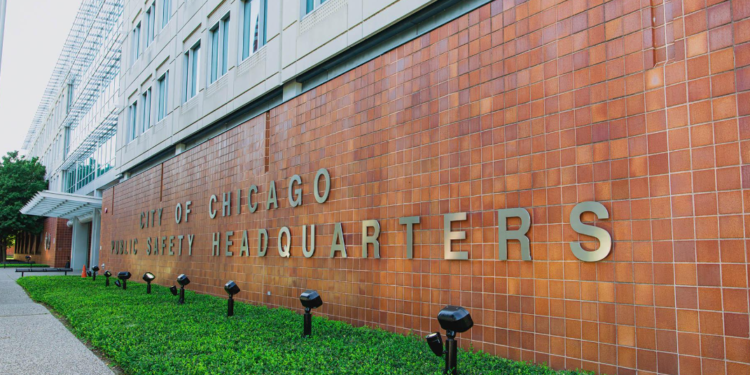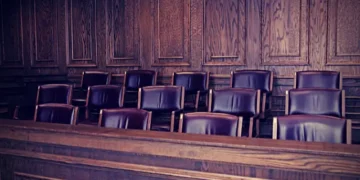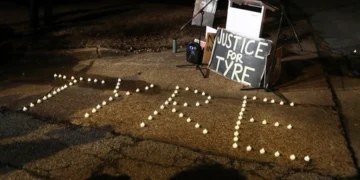Dec 27, 2024 Story by: Editor
Five Chicago residents who alleged that the Chicago Police Department (CPD) unfairly targeted Black and Latino drivers through a widespread campaign of traffic stops will not be allowed to participate in the federal case aiming to compel CPD to revise its training, supervision, and discipline of officers, a federal judge has ruled.
U.S. District Court Judge Rebecca Pallmeyer determined that the plaintiffs, represented by the American Civil Liberties Union (ACLU) of Illinois, did not need to become formal parties in the ongoing consent decree case, even as talks continue over the possibility of expanding the court order to address traffic stops and the role of the city’s new police oversight board.
Eric Wilkins, a community organizer from Roseland and the lead plaintiff in the lawsuit, claims CPD officers conducted over 1.5 million traffic stops between 2016 and 2023, citing minor violations as pretexts to disproportionately target Black and Latino Chicagoans while generally avoiding White drivers.
Pallmeyer stated that she would hold hearings before considering any expansion of the consent decree to include traffic stops.
“The Wilkins Plaintiffs, like all other members of the public, remain entitled to appear at these hearings, present their views, and advocate for policies that will protect their rights,” Pallmeyer wrote in an order signed on December 19. “Moreover, standards that are or will be imposed as a result of the consent decree are a floor, not a ceiling. To the extent the provisions of the consent decree do not afford the relief that the Wilkins Plaintiffs seek, they are entitled to continue to seek that relief in the Wilkins case itself or elsewhere.”
Alexandra Block, director of the Criminal Legal System and Policing Project at ACLU of Illinois, expressed her disappointment with the decision.
“It only fuels our commitment to address and restrain CPD’s use of pretextual traffic stops in a racially discriminatory way,” Block said in a statement. “We will continue that fight through our lawsuit.”
The monitoring team assigned to enforce the consent decree, along with CPD Supt. Larry Snelling, had agreed over seven months ago to expand the court order to include traffic stops. This agreement followed an incident on March 21, when four officers fired 96 shots in 41 seconds during a West Side traffic stop, killing 26-year-old Dexter Reed, who had shot and wounded an officer before the police opened fire.
However, the proposal to expand the consent decree to include traffic stops has met with significant opposition from progressive alderpeople and a coalition of police reform groups.
In October, the monitoring team recommended that the Community Commission for Public Safety and Accountability be granted some authority over CPD’s traffic stop policy.
U.S. District Court Judge Mary M. Rowland, overseeing the lawsuit filed by Wilkins and the other plaintiffs, ruled that there is sufficient evidence to proceed with the case, stating that the city intentionally discriminated against Black and Latino drivers based on race and that the mass traffic stop program disproportionately burdens these groups. However, Rowland has yet to certify the lawsuit as a class action, which would allow other Chicago residents to seek damages.
Since filing the lawsuit in July 2023, three of the plaintiffs have been repeatedly stopped by police, court records show.
According to a report from the nonprofit Impact for Equity, Chicago police conducted over 537,000 traffic stops in 2023, with most based on minor violations that disproportionately impacted Black and Latino residents while sparing White drivers. Since 2015, Black drivers have been six times more likely to be stopped than White drivers, and Latino drivers were twice as likely to be stopped, the report states.
In 2023, more than 51% of all drivers stopped were Black, and nearly 31% were Latino, compared to just 13.6% of White drivers. The demographic breakdown of Chicago’s population, according to the 2020 U.S. Census, is 31.4% White, 29.9% Latino, 28.7% Black, and 6.9% Asian.
In response to the report, a CPD spokesperson told WTTW News, “Traffic stops are not conducted based on race or any other protected class, and all officers must undergo training designed to combat implicit bias.” The statement continued, “Fair and constitutional policing is the foundation of the Chicago Police Department’s efforts to strengthen public safety and trust across the city. Officers only conduct traffic stops when they have probable cause or reasonable articulable suspicion that a crime, including but not limited to traffic violations, has been committed, is being committed, or is about to be committed.”
The Impact for Equity report found that 73% of the traffic stops made by CPD officers in 2023 were triggered by violations related to license registration, broken lights, or similar issues, while only 27.4% of stops were based on moving violations like speeding or failing to stop at a stop sign. The report also indicated that just 2.2% of traffic stops led to arrests, 0.5% resulted in gun recoveries, and 4.4% led to citations.
The lawsuit filed by Wilkins calls for the court to prohibit CPD from using traffic stops as a pretext to investigate other crimes, stop drivers over minor registration or equipment issues like a broken taillight, and requires that officers have an independent legal basis before requesting consent to search a vehicle. Source: WTTW News

















